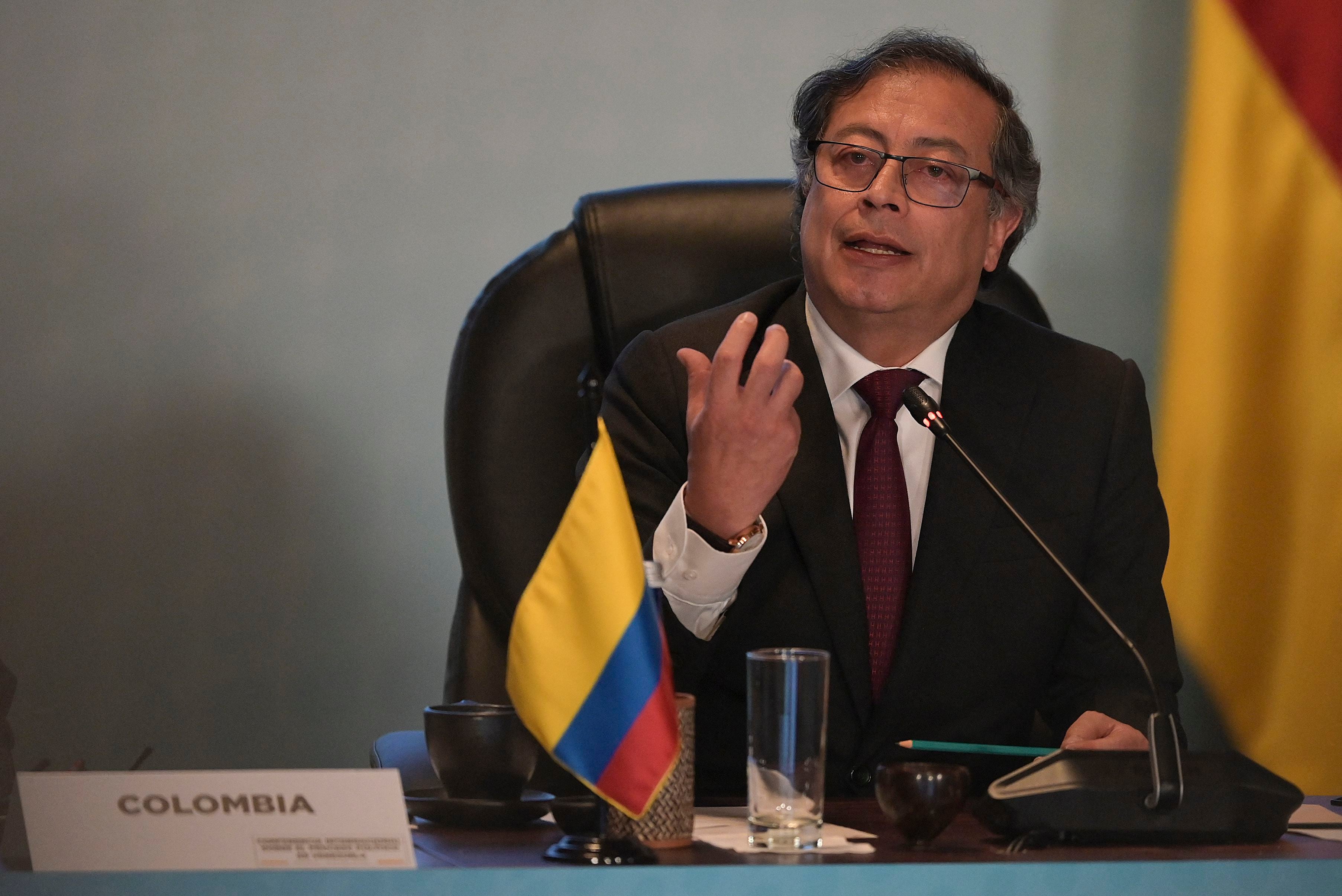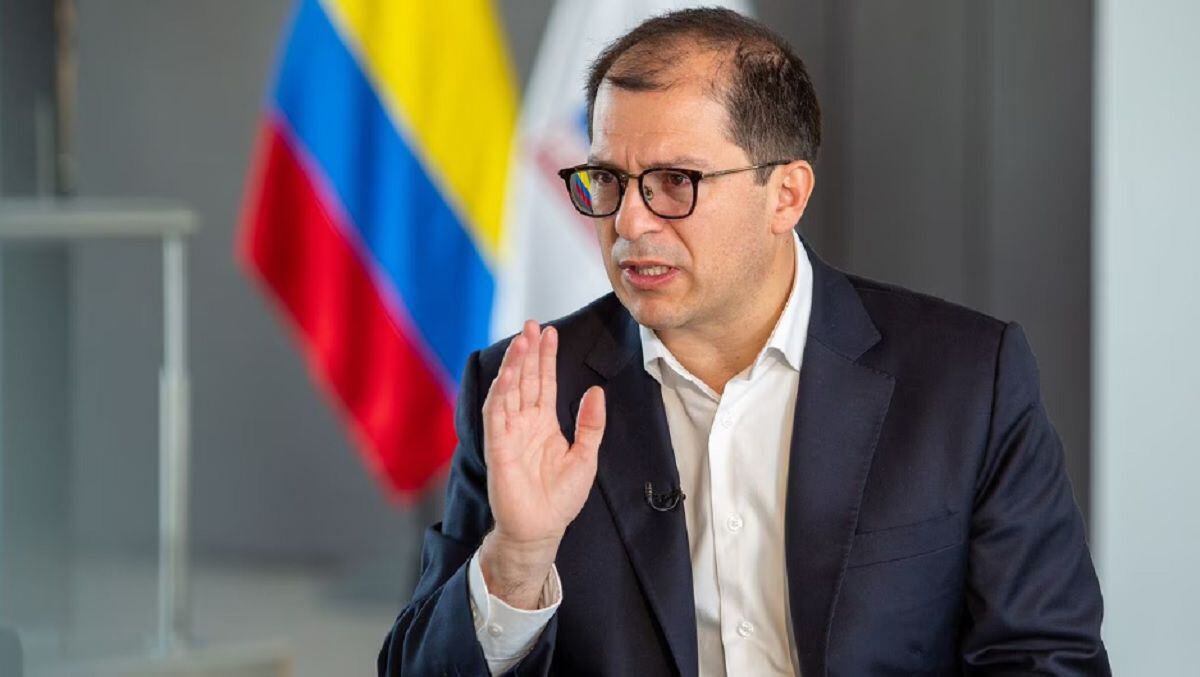The first leftist president of Colombia, Gustavo Petro, has defended that the reforms promoted by his government are not a personal whim. “This is a necessary change. Why not build reforms together?”, he insisted on Friday in a televised address in which he seemed eager to put cold cloths after tense weeks of adjustments and debates around the ambitious proposals in the labor, pension and health systems which filed before Congress.
LOOK: Why the Chilean military has decided to decree the “red alert” in La Araucanía
Nine months after assuming power, Petro is facing a political crisis centered mainly on those reforms. Phrases like “No more Petro” or “Petro, as we go, it is impossible to live tasty” have been repeated on the banners of the various protests that have taken place in recent months against the Government. Last Wednesday, thousands of retired soldiers and police officers demonstrated in Bogotá’s Plaza de Bolívar against the security and defense policies of the Executive branch led by a president who is seeing his unpopularity grow.
Although Petro began his government with a majority coalition that supported him in Congress – made up of parties from the left, center and right – this was fractured by the obstacles to approving the health system reform. That debate, which polarized the country, caused a deep ministerial crisis this month.
The president, faced with the mistrust of the parliamentary groups that previously supported him, was forced to replace seven heads of portfolios, including the Treasury, Interior and Health. It was the second cabinet reshuffle since he became president.
The disintegrating coalition last year approved a tax reform to raise taxes on the richest.
Behind the recent ministerial change is a strategy with which Petro hopes to have greater governance. Although he initially arranged a compromise alliance with political parties in exchange for ministries, he has now opted to put individuals with political leadership within those groupings in his cabinet.
LOOK: Patrick Brown, the man who spent 29 years in prison for a rape he did not commit (and the victim herself helped free him)
Colombian academic Omar Rincón, Associate Professor at the Universidad de los Andes in Bogotá and director of the Center for Journalism Studies and the Master’s Degree in Journalism at the same university, says that, even though Petro says otherwise, he knows that the path forward with the reforms is concertation.
“I think the problem is that Petro uses Twitter more for his bases, saying that he is going to make radical changes. But we all know that politics is negotiating. Whoever says that he approves a law as he passed it, unless he is in a dictatorship, he is lying. And bad or good here you always negotiate, the problem is how far you negotiate, ”he tells El Comercio.

For example, remember that leaders of various political parties ended up agreeing with the change in the Ministry of Health and it did good for the health reform. , she points out.
This same week, the new finance minister, Ricardo Bonilla, affirmed that the government is willing to make changes to the reforms that are being processed in Congress if the modifications are viable. “We do not want to return to the polarization of the health reform, we want to effectively decide what is needed,” he assured the Reuters agency.
LOOK: Who is Aloysius John, the ousted head of Caritas who denounces a “seizure of power” by the Vatican
But Petro has not only come under scrutiny for his reforms. Last week the president was put in check after claiming to be the “boss” of the attorney general, Francisco Barbosa, who opposes his proposals to give benefits to drug traffickers in exchange for his disarmament.
Lawyers and opponents reminded Petro that his statement is not true and accused him of generating “institutional instability.” The president had no choice but to retract and meet with leaders of the country’s high courts.
For Néstor Julián Restrepo, PhD in Politics, Communication and Culture, and professor at the EAFIT University, the criticism of Petro for his statements about Barbosa, whose figure also generates controversy, is part of the distrust that exists that he can remain perpetually in the can. “Who says that the president is authoritarian because he is attacking the Judiciary. Now, I think that this is a game that is more popular in the media than anything else, ”he tells this newspaper.

The episode with the prosecutor adds to other controversies that affect the president, among which stands out the fact that the Colombian Prosecutor’s Office opened a formal investigation into the accusations against Petro’s son, Nicolás, of having received money from an illegal source. The president has not hesitated to ask that the accusations against his son be investigated, as well as those that dot his brother, Juan Fernando, who would have agreed to pardons with criminals.
Rincón and Restrepo emphasize that Petro is achieving more media shows than events in his management. “. The solution? First, take Twitter away from Petro. Secondly, that he dedicate himself to being a statesman and stop behaving like the barra brava candidate and, thirdly, that he demonstrate facts. There are no facts, it does nothing”, says Rincón.
Source: Elcomercio
I am Jack Morton and I work in 24 News Recorder. I mostly cover world news and I have also authored 24 news recorder. I find this work highly interesting and it allows me to keep up with current events happening around the world.

:quality(75)/cloudfront-us-east-1.images.arcpublishing.com/elcomercio/JJ3B4ZJFSZAKZOBEO5JA6QZLF4.jpg)

:quality(75)/cloudfront-us-east-1.images.arcpublishing.com/elcomercio/VJKKCRZ5JFGLNLRWVYFYRQS4LA.jpg)
:quality(75)/cloudfront-us-east-1.images.arcpublishing.com/elcomercio/VY7C53O5H5AZ3L3RERBK3C7TFE.jpg)
:quality(75)/cloudfront-us-east-1.images.arcpublishing.com/elcomercio/IWWZSWAZTFAXJKLDOCQXKQAOZ4.jpg)

